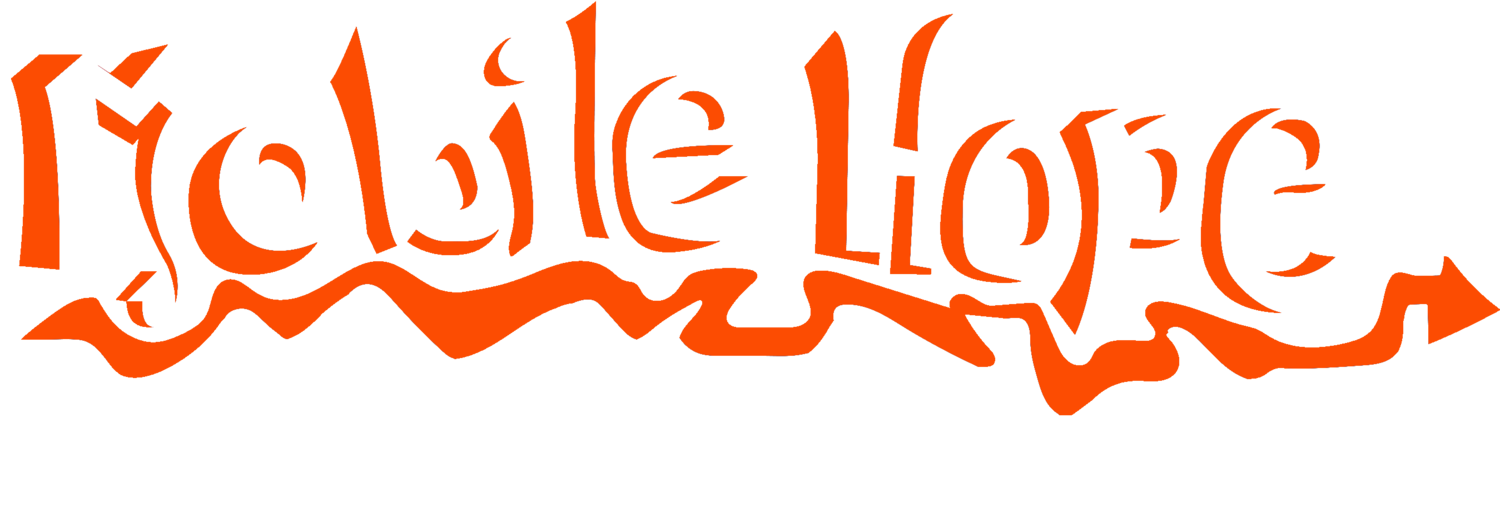
This Is My Story of Strength.
When I arrived at Mobile Hope, I was living in my car.
I had been accepted to college, full of hope and plans for my future—but after a painful rift with my parents, I suddenly had no financial support and nowhere to live. What was supposed to be the start of my next chapter quickly became a season of survival. Every possession I owned was crammed into my car. That car wasn’t just transportation—it was my bedroom, my storage unit, my safe place.
I would pull into Mobile Hope’s parking lot with everything I owned stuffed inside. I came to do my laundry. I came to get guidance. I came to get food. I came because, honestly, I didn’t know where else to go.
What I found inside those doors was more than help—it was hope. I found people who saw me.
The team helped me begin sorting out not just my immediate needs, but my life. Something as simple as learning how to properly do laundry became part of learning how to care for myself again. My car was barely running, and I had no idea how to maintain it. A former Mobile Hope client taught several of us general car maintenance. Their staff also taught me—how to keep my only shelter safe, how to protect myself, and where to possibly park.
Step by step, I learned how to be stable again.
They didn’t judge me for living in my car, I learned many kids my age do. They didn’t rush me. They walked with me.
Mobile Hope helped me rebuild from the ground up—practical skills, emotional support, and the confidence I had lost along the way. They reminded me that my circumstances did not define my future.
Today, I am no longer living in survival mode. I am standing in my own strength—because someone believed I was worth investing in when I had almost nothing left.
Mobile Hope didn’t just help me get through a crisis. They helped me learn how to live again.
This Giving Tuesday, Your Gift Goes Twice as Far.
Thanks to a generous matching donor, your gift will be matched dollar-for-dollar up to $20,000.
I’m Mandy.
I am 20 and a survivor of youth homelessness.
This is my story.
I grew up here in Loudoun. My dad worked in software and my mom had an office job. We lived in a nice house with a big yard—my parents easily paid for school trips, cars, sports teams, and the coolest clothes. We had many neighborhood friends we would invite over on the weekends. My dad coached my brothers and I.
Life was easy.
Once I started eleventh grade, things got complicated. My mind stopped feeling the same as it had. It started with anxiety that was tough to tolerate. I had a hard time staying in class. My parents took me to a counselor, and I saw so many other doctors to make sense of what was happening.
I got a slew of diagnoses and new medications. I didn’t like how they made me feel so I stopped taking them.
I barely graduated. My parents were upset at the drugs I was using, but the drugs seemed to help in some weird way. My parents gave me a choice—stay clean or get out.
I left. I couch surfed with friends. Would stay a week with one friend, then I’d wear out my welcome and go to the next. Keeping a job was tough…I didn’t have a car and had to put my energy into where I would sleep and what I would eat. Libraries and 24-hour fast food restaurants were my go-tos, but bouncing around made me feel lost and alone.
One of my friends told me about Mobile Hope.
During my first meeting, I told them everything, and it felt so good to get it out, without being judged. If I was ready to make changes to move forward, they were all in.
And I was in, too. I was tired of being hungry, dirty, homeless and stuck.
They helped me call coordinated entry so I could access the county shelter—no beds. Mobile Hope put me in a hotel the first night, still no shelter bed. I was in the hotel for three weeks, but it was just too expensive. They gave me a tent and I would have to make do until a bed opened.
They helped me with my resume and interviewing—I got a job at a grocery store.
I was in a “tent city” behind the shelter as I waited for a bed. There were about thirty tents—nice people, but a lot of drugs and mental illness. I locked my tent when I left for work everyday in the hopes that no one would steal my clothes and food.
A room opened up at Mobile Hope’s apartment—I was ready for something more stable.
I saved money, and after six months had enough to rent a room on my own, closer to my job but still on the bus route.
I was soon promoted to manager. The new meds seem to be helping, at least for now. I still struggle, but things are looking up.
Hoping, one day, I will reconnect with my mom and dad, and they, too, will be proud of me.
I am a survivor of youth homelessness.
This is my story.
I was placed in foster care when I was 3 months old. I have not seen nor heard from my biological mom since that day, and the “father” section is blank on my birth certificate. I’m always curious and thinking about who–and where–they are now.
As early as I remember, my “new” family was in and out of homelessness. Shelters, food pantries, and free school lunches were the norm. In third grade I started getting extra help at school—I had a learning disability.
When I turned 12, I discovered the excitement of the streets—guns, drugs, and dealing. I joined a gang, who became the family I never had.
But it came with a price—in and out of juvenile detention, school suspensions, then expulsion. Always in trouble, watching my back.
The price got too high. My life as I knew it was gone—not a person I could trust anywhere. I wanted to get out…I would get out. But how?
That’s when I first learned about Mobile Hope. I had 40 community service hours to complete, and my probation officer suggested I go to Mobile Hope. It felt like home to me. I helped give out the food and clothes on bus runs, and we ate lunch together everyday. It felt like family, and I began to trust. They became my “people” and I started to change.
Gangs don’t make exits easy…and this was no exception. I traded my colors for a knife in the gut. Donna came to see me in the hospital. They didn’t think I’d make it, and the scar serves as a reminder of the pain.
A few months later, homelessness hit again. this time I was by myself, nowhere to go. I remembered Mobile Hope and reconnected. They welcomed me back with open arms. They put me in a hotel until a bed opened at the shelter.
I went to Mobile Hope everyday, looking for jobs and meeting with my mentor. I worked with them for months, which turned into years. They helped me get a room, and a donated car. I got a “county” job as a custodian…I was really proud. I rented a basement apartment. I still didn’t make enough, but I went to Mobile Hope’s bus every week to get help with groceries.
I got married. We had a baby. I got a better job. We had another baby. Now, I am a proud member of the United States Marines.
This time, I would make it out of homelessness. Thanks, Mobile Hope.
I am 19, and a survivor of youth homelessness.
This is my story.
Being a kid was tough. We moved a lot. My mom died when I was in 7th grade, which left me, my dad and my little sister. My sister became my dad’s favorite. I remind him of my Mom, which makes him sad.
We had to rent out one of the rooms in our apartment to another family so we could afford to stay there. They had 2 little kids, and it became my job to watch them, too. I felt like a mom at just 15. There was no time for homework or making friends. I was always changing diapers or figuring out meals with an empty refrigerator.
I slept on a mattress in the corner. I was so tired in the mornings I stopped getting up for school. I started missing a few days here and there, and then all of a sudden I was missing weeks at a time. The school kept calling, but nothing really changed.
A few weeks before I turned 18, my dad told me that on my birthday, I had to move out. I told my school counselor, who told me about Mobile Hope. I was 18, but only had enough credits to be a ninth grader.
My counselor scheduled a call with Mobile Hope. They said as long as I was in school, I could live in their apartment. Since I was a “McKinney-Vento” kid, I could get a bus to school each day, even though it was far from the apartment.
I moved into the apartment on my 18th birthday. Donna and KC brought me over there, and had decorated the apartment with balloons and Happy Birthday banners. I felt so many different feelings, I cried.
I still worked the midnight shift at a fast-food restaurant, but they said it was too dangerous to ride my bike around Leesburg in the middle of the night. I got a job at a grocery store in the evenings instead.
On my days off from school, I went to Mobile Hope and helped with bus runs and met other kids like me. I also went to Graffiti & Silk to get clothes. I got to take a field trip to the Google office building in Reston and learn about data center jobs.
I met an older man at the grocery store where I work—he is 36, and promises to take care of me. He has a car and I can move in with him. My case managers assure me that with Mobile Hope’s help, I can support and take care of myself—without moving in with him. They say moving in with him is a bad idea, and that I can do everything I want to do without moving in with him.
They say that with Mobile Hope, I have opportunities to develop skills, join their trade school and get a good job—that I will be able to make it on my own.
I’m still deciding what to do.






